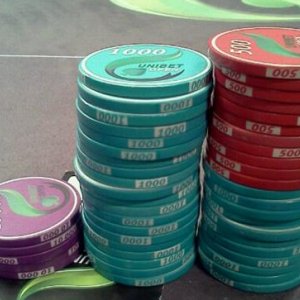Taking Effective Breaks from Poker

 Playing poker is something I enjoy and have been able to do for a profit for many years now. I still enjoy playing, but once you go from playing recreationally to playing for part or all of your income, your focus and motivation need to change. I encourage most people to play recreationally. That way, they can play when they want to and avoid the pressure of having to win.
Playing poker is something I enjoy and have been able to do for a profit for many years now. I still enjoy playing, but once you go from playing recreationally to playing for part or all of your income, your focus and motivation need to change. I encourage most people to play recreationally. That way, they can play when they want to and avoid the pressure of having to win.
When or if a person should play professionally is a common topic of discussion and something I have plenty of opinions on, but for purposes of this article, I want to focus on when players should take breaks. A recreational player has the ability to step away from the game any time they want and for as long as they want, but for those who play professionally to support themselves and their families, breaks have to be planned and can’t last indefinitely.
The more comfortable your bankroll and the more frugal your lifestyle, the more flexibility you have. But, until you have made enough that you are retired and back to playing recreationally, your breaks can only last so long.
Personally, my issue is not that I take too many breaks, but rather that I hate to miss a game and an opportunity to make some money. Stepping away from the game every now and then is necessary and important to your overall results. Breaks can allow you to come back fresh with a clearer view of your game and the games you are playing in. Over time, we can all get into ruts and start to miss out on some important changes and elements of the games we are playing in.
 A week off is enough for me to get away from the game, clear my head, and come back fresh. I don’t have any set times that I take breaks, but go more on a gut feel of when I am starting to get a little burnt out or just not feeling like I am at my best. Working out regularly and staying consistently involved in things I enjoy outside of poker help me stay fresh day to day. However, sometimes I have to take a real break from playing for a week.
A week off is enough for me to get away from the game, clear my head, and come back fresh. I don’t have any set times that I take breaks, but go more on a gut feel of when I am starting to get a little burnt out or just not feeling like I am at my best. Working out regularly and staying consistently involved in things I enjoy outside of poker help me stay fresh day to day. However, sometimes I have to take a real break from playing for a week.
When I decide to step away, I do it fully, not doing anything poker-related. I don’t read about poker, go to any games, or pay any attention to what is going on in the poker world.
More important than what you do while you are taking a break is what you do when you come back. If you were on a bad run before you stopped, you need to have mentally and emotionally let that go. That was part of why you took a break, so don’t bring it back to the tables with you.
Starting fresh mentally should give you a more accurate picture of how you are playing and the chance to refresh your view of those around you. People change their games over time, but much like when you are around a young child every day, you don’t notice how much they have grown, but a kid you only see every few months can seem like they have grown a foot.
 While you are away from the game, don’t even think about poker. When you resume playing, I would suggest using the time you spend driving to a game or getting ready to play to focus on the things you know you should be doing. Emphasize in your own mind the areas you need to concentrate on and get in the mindset you need to be in to play your best.
While you are away from the game, don’t even think about poker. When you resume playing, I would suggest using the time you spend driving to a game or getting ready to play to focus on the things you know you should be doing. Emphasize in your own mind the areas you need to concentrate on and get in the mindset you need to be in to play your best.
Breaks are important. Take at least a couple each year and when you come back from one, make the most of it by playing your best out of the gate. Don’t let yourself fall back into any ruts you may have been in before you decided to step away.
Court Harrington has worked on the business side of the poker industry in roles including tournament reporting for PocketFives, radio hosting for PokerRoad Radio, coaching for the WSOP Academy and privately, and a variety of behind-the-scenes responsibilities. He also plays in cash games and tournaments. Harrington is currently doing consulting work and exploring business opportunities outside of the poker industry. You can contact him at Court@CourtHarrington.com.




